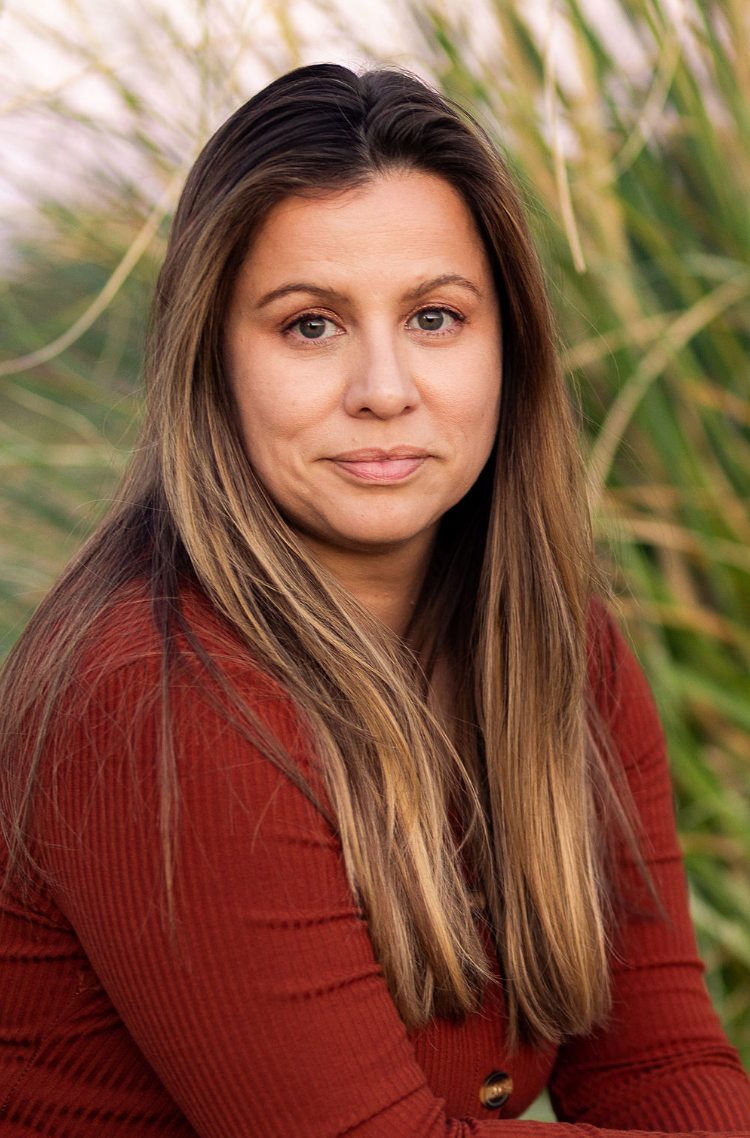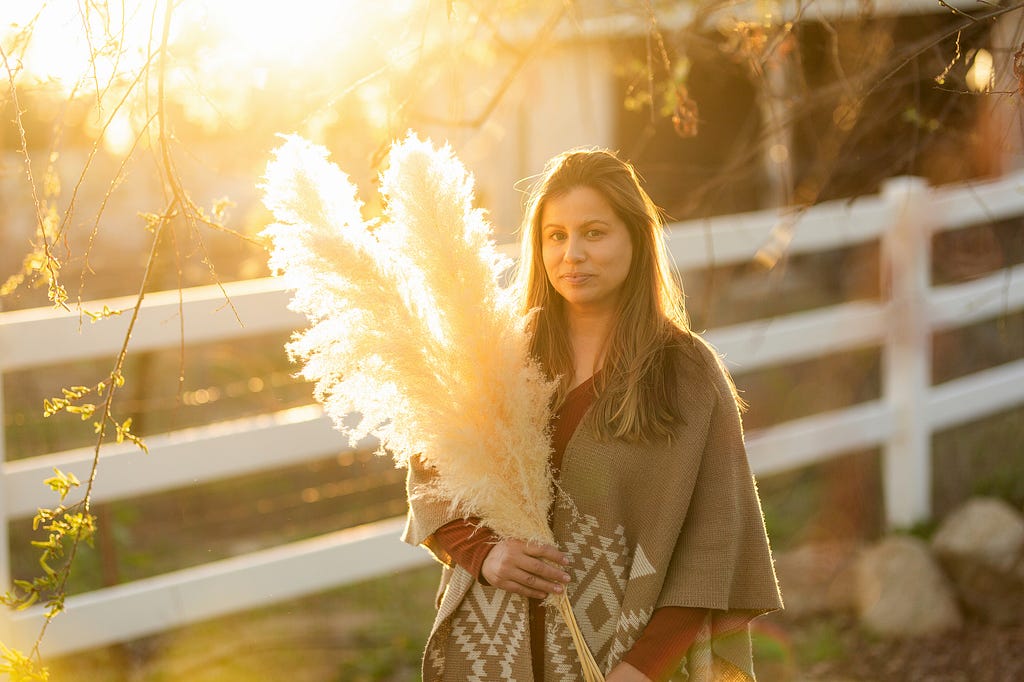An Interview With Candice Georgiadis

A third piece of advice is to start a business with someone who knows what you don’t. My co-founder Christina knows the beauty industry and finance in and out and I know media, online communities, and publicity. Our talents and skills complement each other really well.
As a part of our series about women who are shaking things up in their industry, I had the pleasure of interviewing Ann Dunning.
Ann is #firstgen Chilean-American, born in Chile and raised in LA. She went on to attend UCLA and USC, and ended up in Silicon Valley helping hundreds of startups with growth. She is a Public Relations pro, and was among the first Latinas in online publicity and marketing at the start of the digital era. In her 20’s, one of her first freelance clients was a little brand called Waze (pre Google). She is now the co-founder and CMO of Vamigas, a Latina green beauty line based on botanicals from Latin America.
Thank you so much for doing this with us! Before we dig in, our readers would like to get to know you a bit more. Can you tell us a bit about your “backstory”? What led you to this particular career path?
I was going through IVF when I met Christina, a fellow Latina and also first time mom. We would get together down the street from our apartments in San Francisco at a little social club and would have these fun afternoons with tecito (tea or coffee).
We were both starting to really get into clean beauty because of our pregnancy journeys and so we started talking about clean beauty and green beauty. Through our research we found that many studies have found that Latinas — who buy and use more beauty products –have more hormone-disrupting chemicals in their bodies. What’s worse is that many of these researchers were suggesting that it was our high use of personal care products that might be the culprit behind this phenomenon.
Latinos make up 18% of all beauty spending, but Latinas have remained largely marginalized in clean beauty. There’s no major clean beauty brand at mass actually targeting Latinas. We thought this was a ridiculous stat and so we got to work creating a minimalist, green beauty brand that we would also love ourselves — and that also focused on connecting Latinas with green beauty.
Can you tell our readers what it is about the work you’re doing that’s disruptive?
No one in clean beauty is targeting Latinas right now but the market is huge — in fact a Women’s Wear Daily report just last year found that Latinas outspent general market in beauty by 30% — even during the pandemic. Big beauty brands who have historically done some marketing to Latinas don’t really know how to market to the complexity and heterogeneity of our community: Latinos are from multiple countries, have differing levels of assimilation and are of multiple generations, and of course varying skin tones and hair texture. But in clean beauty itself there is literally not one major beauty brand at mass that is saying anything to us. It’s basically been up to us new indie beauty brands to bring clean beauty to our communities.
Can you share a story about the funniest mistake you made when you were first starting? Can you tell us what lesson you learned from that?
When Christina had this idea for the business, I think the funniest mistake I made was not understanding how big of an idea this was and what a huge opportunity this would turn out to be. I had quit my PR business when I had my baby, and I initially thought this would be a really fun side business — something that we would build and run in the background while taking care of our babies.
But it caught on so quickly and the market, retail partners and customers, have welcomed us so quickly, that I had a massive wakeup call. We started getting those first few purchase orders just a few months after our launch. I quickly realized how fast this business was growing and how this growth wasn’t average by any means, and that this would be the center of my life for a while. The memories of this being a “hobby” are funny to me now, thinking back.

We all need a little help along the journey. Who have been some of your mentors? Can you share a story about how they made an impact?
My mentors have been CPG and PR superstars, mostly women. They are founders who have been there and who have already gone through the entrepreneurial journey, launched at major retailers, and dealt with the growing pains that happen. I have learned a lot from those great leaders.
In today’s parlance, being disruptive is usually a positive adjective. But is disrupting always good? When do we say the converse, that a system or structure has ‘withstood the test of time’? Can you articulate to our readers when disrupting an industry is positive, and when disrupting an industry is ‘not so positive’? Can you share some examples of what you mean?
Disrupting an industry for the good of an industry means you’re pushing it forward, and not piercing it for the sake of piercing. Pushing it forward means holding it to a higher standard, changing something that is not really working anymore, holding the industry accountable so that it can be a better version of itself. Pushing it to face the future even and to make sure it includes as many people as possible.
To disrupt an industry in a negative way I think means attempting to change aspects of an industry for your own good, or for the good of just a few people and your own pockets. This means not thinking about anyone else other than yourself. I’m sure you can name several founders who are like this.
Can you share 3 of the best words of advice you’ve gotten along your journey? Please give a story or example for each.
I once heard “do what you love and forget the rest.” That was when I was in my PhD program in another state and was pretty unhappy. As an immigrant, when you’re in college you think that you have to follow a very specific path, and you always have to have a Plan B. I ended up leaving the program and came back home, with no plan. I pivoted and figured the rest out later. I couldn’t be happier where it took me because that career and life growth was tremendous after that.
The second piece of advice was to not sell, and instead become a storyteller. In business, stories get your foot in the door — with media, with retail and even with investors. Everyone wants to see a really great story idea. Our business is really thriving I think partly thanks to our storytelling.
A third piece of advice is to start a business with someone who knows what you don’t. My co-founder Christina knows the beauty industry and finance in and out and I know media, online communities, and publicity. Our talents and skills complement each other really well.
We are sure you aren’t done. How are you going to shake things up next?
Along with my co-founder Christina and another friend of ours, a veteran woman in tech, Lisha Bell, we had already started an angel syndicate where we invested in women and particularly BIPOC-led businesses that solved parenting problems. I think I would at some point I would love to do more of that and help fund more founders of color since they face a very uphill climb when finding investors for their ideas. It’s exhilarating helping founders find their story but also the funding that they need to get to the other side.
In your opinion, what are the biggest challenges faced by ‘women disruptors’ that aren’t typically faced by their male counterparts?
Not being taken seriously. Particularly if they’re moms. People might see you as someone who doesn’t know what you’re doing or who is inexperienced even though you may have decades of professional experience.
Do you have a book/podcast/talk that’s had a deep impact on your thinking? Can you share a story with us?
Yes, truthfully, when I moved to Silicon Valley/SF, it was Tim Ferriss’ podcast ‘The Tim Ferriss Show’ that inspired me. He interviews some of the best minds throughout multiple ecosystems. The ideas he presents just helps you look at business and life problems differently. I started looking at the world, my business and my career in a completely new way and it was life changing. He taught me to trust my instinct, get accustomed to thinking deeply about problems, and also to not “go with the flow” like most people tend to do.
You are a person of great influence. If you could inspire a movement that would bring the most amount of good to the most amount of people, what would that be? You never know what your idea can trigger. 🙂
Lean into your ancestral power and knowledge to guide your life. I think sometimes people forget that there are generations before us of people who made it possible for us to be here today and to be successful as we are. Who allowed today to happen. Remember them, study them, use their wealth of knowledge, and also honor them in anything that you do, because they would probably be incredibly proud of you.
Can you please give us your favorite “Life Lesson Quote”? Can you share how that was relevant to you in your life?
Stop assuming everyone else is the expert, and just because something has been done one way for a long time, it doesn’t mean it’s the best way. Question everything and everyone. Trust your gut and have research and data-driven reasoning behind every decision you make.
How can our readers follow you online?
www.vamigas.com (Vamigas)
https://www.instagram.com/vamigasbotanicals/ (Vamigas Instagram)
https://www.instagram.com/annmaureensf/ (Ann’s Instagram)
This was very inspiring. Thank you so much for joining us!
Photo credit: Rachel Manning Photography
Female Disruptors: Ann Dunning of Vamigas On The Three Things You Need To Shake Up Your Industry was originally published in Authority Magazine on Medium, where people are continuing the conversation by highlighting and responding to this story.

